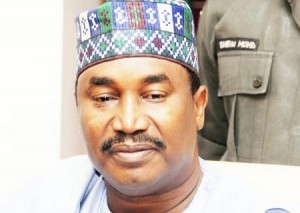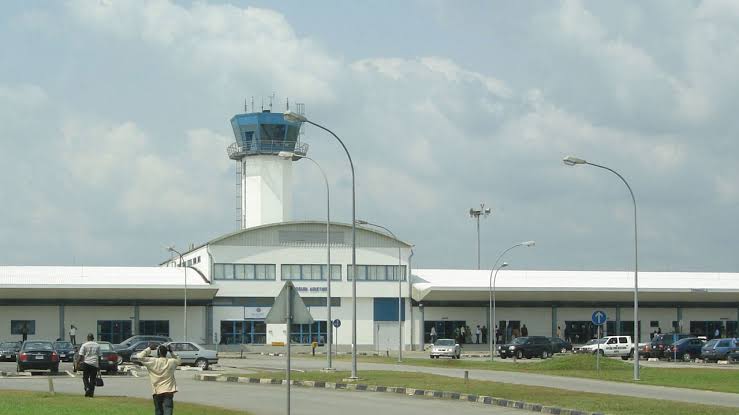Opinion
Can a State Develop Without Borrowing?
By Alex O. Atawa Akpodiete
From August 28 to August 30, 2014 I attended the Annual National Editors Conference (ANEC), of the Guild of Editors, held in Katsina. There were over 200 other editors in attendance.

The only notable drama was when we arrived by a mosque and our driver left the vehicle for a brief prayer. All of us (and our spouses) that were filled with trepidation over the dreaded Boko Haram were pleasantly surprised at the peacefulness of the State. This fact was acknowledged by the President of the Editors Guild, Mr. Femi Adesina in a vote of thanks.
During the Governor’s forum, our host the Executive Governor of Katsina State, Alhaji
Ibrahim Shehu Shema commented that since he came into office in 2007, his administration has not borrowed one penny, despite the massive infrastructure and human capital development. He also stated (euphemism for boasted) that workers’ salaries were always paid between 22-24th of each month and no salaries were owed. Other state governors, including Bayelsa and Lagos, were represented. Part of the side discussion was whether a State can develop without borrowing. A colleague postulated that there is a magnitude of development that you will want to engage in as a State but you cannot do without borrowing. We are not talking about reckless borrowing.
The representative of Gov. Babatunde Fashola of Lagos State pointed out that because we are in a federation, a State cannot borrow from the bond market without the federal government’s involvement. Also, a bond company will do its due diligence to verify if a State can repay based on various indices including federal allocation and Internally Generated Revenue (IGR). This should be part of the Loss Prevention Analysis of the lending company.
To the extent that several states in the federation have borrowed billions ostensibly for infrastructure development to deliver the ubiquitous “dividends of democracy” to their citizens, it was imperative we hear and see what Governor Shema has done so far. It was not necessary to do a comparative demographic (population) analysis with a State like Akwa Ibom that receives the highest federal allocation based on oil generation.
I love reading books and quotes on leadership. “The Little Red Book” is a book of selected statements from speeches and writings by Mao Zedong (Tse-Tung), the former leader of Chinese Communist Party, published from 1964 to about 1976 and widely distributed during the Cultural Revolution. The most popular versions of the book were printed in small sizes that could be easily carried and were bound in bright red covers, becoming commonly known in the western hemisphere as The Little Red Book. It is apparently one of the most printed books in history to date. One of my favorite quote of Chairman Mao from the book is the following: “It is the duty of the cadres and the Party to serve the people. Without the people’s interests constantly at heart, their work is useless.”
In other words, to evaluate whether a State should borrow, I will postulate that the people’s interests should be paramount.
The day after Governor Shema’s speech about not borrowing, we visited the Katsina Youth Craft Village (KYCV), where we saw young men and women being trained in various industries such as computer operation, photography & video production, tailoring, welding & fabrication, bakery, beauty salon, pottery & iron works, and leathering & shoe making. AT the shoe making section, several delegates were so impressed that they were buying up all the leather sandals made by the trainees. Everyone undergoing the trainee receives 2,000 Naira monthly stipends while in the programme. We further learnt that all graduates of the skills acquisition program receive seed money and needed tools as entrepreneur to start their business.
So that the extent of the governor’s programme is limited to human capital development, we visited the take-off location of the new Federal University in Dunsima (FUDMA). What business does the State have with a federal university? We went to confirm that the governor had actually provided one million Naira to refurbish the Senate building.
Thereafter, we went to a Songhai agricultural facility. At this farm, we saw tomatoes that grew to maturity in 60 days, garden egg farms, chicken facilities and section where a hybrid of chicken and turkey were being bred. I don’t know what to call it. (chikey?).
Three other paces we saw were the remodeled stadium, a brand new ICT complex, and an orthopedic hospital. These were all built without loans.
Our dinner and investiture was at a brand new government house, spanning several hectares of land fully developed and manicurely landscaped. Again without borrowing.
An examination of the economies of many states will reveal a deficit or that they are financially in the red. Governance involves planning and is a matter of responsibility. We did not see any white elephant projects and the governor appeared allergic to stomach infrastructure.
What the representative of another governor stated that “America is one of the worse debtor nations, but has great infrastructure.” He was not being facetious when he pointed out that it is the same America that many of us praise.
We are still faced with the unanswered question, is it possible to develop a State without borrowing? It is worth thinking about it especially as the 2015 general election is just around the corner. Keep in the back of your mind this other quote by Chairman Mao “It is necessary for intellectuals, students, soldiers and the average peasant to pay attention and involve themselves with political work.”
*Rev. Atawa Akpodiete, a public affairs analyst writes from Asaba. He is also an aspirant for Udu/Ughelli North/Ughelli South Federal Constituency in Delta State & publisher of Politics Governance. Contact him on 08138391661 or Profatawa@gmail.com,


